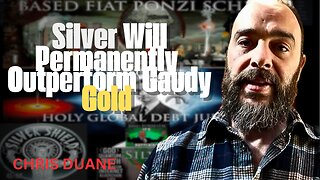Premium Only Content

The False Claims Act and the Qui Tam Suit
A Video Explaining An SIU Profit Center
The False Claims Act, also known as the “Lincoln Law,” dates back to the Civil War. President Lincoln signed the act into law in 1863 because war profiteers were selling the Union Army shoddy supplies at inflated prices. The original law included qui tam[1] provisions that allowed a private person (plaintiff) to sue those who defrauded the federal government. If the suit was successful the plaintiff would receive 50% of any recovery from the defendant.
“Qui tam” is an abbreviation of the Latin phrase “qui tam pro domino rege quam pro si ipso in hac parte sequitur” meaning “Who sues on behalf of the King as well as for himself.” There are a number of pronunciations of the Latin abbreviation qui tam. The simplest is key tam (rhymes with “ham.”) Black’s Law Dictionary suggests kweye (rhymes with “eye”) tam.
The False Claims Act makes it unlawful to knowingly (1) present or cause to be presented to the United States a false or fraudulent claim for payment or approval, 31 U.S.C. § 3729(a)(1) (2006); (2) make or use a false record or statement material to a false or fraudulent claim, § 3729(a)(1)(B); or (3) use a false record or statement to conceal or decrease an obligation to pay money to the United States, § 3729(a)(7) (2006). Under the Act, private individuals ..., referred to as “relators,” may file civil actions known as qui tam actions on behalf of the United States to recover money that the government paid as a result of conduct forbidden under the Act. Glaser v. Wound Care Consultants, Inc., 570 F.3d 907, 912 (7th Cir. 2009). As an incentive to bring suit, a prevailing relator may collect a substantial percentage of any funds recovered for the benefit of the government. To establish civil liability under the False Claims Act, a relator generally must prove (1) that the defendant made a statement in order to receive money from the government; (2) that the statement was false; and (3) that the defendant knew the statement was false. E.g., United States Ex Rel. Gross v. Aids Research Alliance–Chicago, 415 F.3d 601, 604 (7th Cir. 2005); USA and the State of Wisconsin v ACACIA Mental Health Clinic, USCA, 2016 WL 4555648 (2016).
© 2021 – Barry Zalma
Barry Zalma, Esq., CFE, now limits his practice to service as an insurance consultant specializing in insurance coverage, insurance claims handling, insurance bad faith and insurance fraud almost equally for insurers and policyholders.
He also serves as an arbitrator or mediator for insurance related disputes. He practiced law in California for more than 44 years as an insurance coverage and claims handling lawyer and more than 54 years in the insurance business.
Subscribe to Excellence in Claims Handling at https://barryzalma.substack.com/welcome.
He is available at http://www.zalma.com and zalma@zalma.com. Mr. Zalma is the first recipient of the first annual Claims Magazine/ACE Legend Award. Over the last 53 years Barry Zalma has dedicated his life to insurance, insurance claims and the need to defeat insurance fraud. He has created the following library of books and other materials to make it possible for insurers and their claims staff to become insurance claims professionals.
Go to training available at https://claimschool.com; articles at https://zalma.substack.com, the podcast Zalma On Insurance at https://anchor.fm/barry-zalma; Follow Mr. Zalma on Twitter at https://twitter.com/bzalma; Go to Barry Zalma videos at https://www.rumble.com/zalma ; Go to Barry Zalma on YouTube- https://www.youtube.com/channel/UCysiZklEtxZsSF9DfC0Expg; Go to the Insurance Claims Library – https://zalma.com/blog/insurance-claims-library/ The last two issues of ZIFL are available at https://zalma.com/zalmas-insurance-fraud-letter-2/ podcast now available at https://podcasts.apple.com/us/podcast/zalma-on-insurance/id1509583809?uo=4
-
 7:40
7:40
Barry Zalma, Inc. on Insurance Law
9 months agoLoss of Inventory by Bankruptcy
131 -
 1:02:21
1:02:21
The Dan Bongino Show
4 hours agoTrump Makes His BOLDEST Moves Yet (Ep. 2370) - 11/13/2024
543K1.75K -
 1:02:59
1:02:59
The Rubin Report
2 hours agoCNN Host Forced to Intervene as Guest Loses His Cool as Republican Calmly States Facts
40.4K40 -
 LIVE
LIVE
The Boomer Effect
18 hours agoSocial Security - Simple and Smart
24 watching -
 24:06
24:06
Rethinking the Dollar
3 hours agoDigital Illusions of Wealth: Why Real Silver Matters More Than Ever!
3081 -
 1:37:01
1:37:01
Professor Nez
16 hours ago🚨LIVE President-elect Trump Meets with President Biden in the Oval Office
19.3K20 -
 2:00:38
2:00:38
Steven Crowder
4 hours agoLet that Sink In: This is why the Left Lost & Elon and Vivek Form New Trump Superteam
337K199 -
 LIVE
LIVE
Benny Johnson
3 hours ago🚨 DADDY'S HOME: Trump Meets Biden At White House LIVE Right NOW, Joe Surrenders Federal Gov to MAGA
15,013 watching -
 LIVE
LIVE
Midnight's Edge
3 hours agoThe TDS of our stars, and scandals of Wicked | MEiTM #639
244 watching -
 LIVE
LIVE
The Shannon Joy Show
20 hours ago🔥🔥COVID Democide Rages On Amidst The Political Circus! Sudden Kidney Failures Are Spiking As The Latest Hospital Horror. Live Exclusive With Researcher John Beaudoin🔥🔥
507 watching